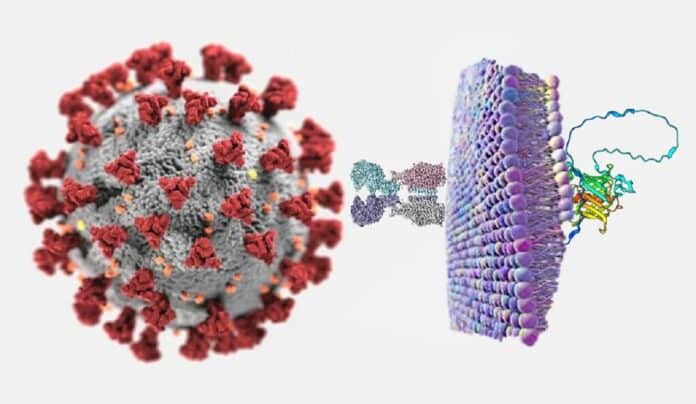For preparing and fighting emerging SARS-CoV-2 variants, it is imperative to understand COVID-19 protective immunity. Neutralizing antibodies have been examined, but large-scale patient exome sequencing suggests that local cell-autonomous defense is just as important.
The primary defense against COVID-19 has been vaccines that stimulate the production of antibodies tailored to attack specific spike proteins of the SARS-CoV-2 virus. Yale researchers discovered that local cells in the respiratory system and other tissues contain a protein that can prevent the SARS-CoV-2 virus from spreading.
Senior author John MacMicking, a tenured associate professor of microbial pathogenesis and immunobiology at Yale, a member of the Yale Systems Biology Institute on Yale’s West Campus, and an investigator at the Howard Hughes Medical Institute, said, “The protein acts at the very beginning of viral replication and could offer new ways to treat viral infections.”
The Yale University group, led by Dijin Xu and Weiqian Jiang, examined the human genome for genes that could interfere with the virus’s capacity to multiply inside cells.
They discovered that the virus’s capacity to infect human lung cells was hampered by phospholipid scramblase 1 (PLSCR1). According to the researchers, PLSCR1 prevented the original SARS-CoV-2 virus and the Delta and Omicron subtypes from infecting healthy cells.
According to other research, Individuals having a mutation that hindered the protein’s action were more likely to have severe COVID-19 instances. The Yale team found that PLSCR1 blocked the ability of the original SARS-CoV-2 virus and the Delta and Omicron variants from infecting healthy cells.
PLSCR1 is a component of the innate immune system that can also respond to T-cell instructions recognizing viral intruders. If researchers can find a mechanism to activate PLSCR1, it could provide another therapeutic option for COVID-19 and possibly other viruses. Individuals with PLSCR1 mutations may be identified through genetic tests, increasing their risk of serious illness.
Journal Reference:
- Xu, D., Jiang, W., Wu, L., Gaudet, etal. PLSCR1 is a cell-autonomous defense factor against SARS-CoV-2 infection. Nature. DOI: 10.1038/s41586-023-06322-y
